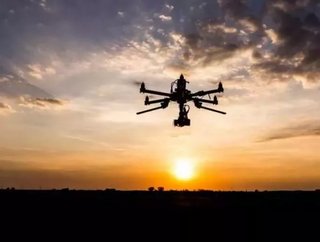Are drones a credible delivery option?

When Amazon first announced plans to test drone delivery back in 2013, many dismissed it as a publicity stunt. Yet less than three years later the retail giant is attempting to make this pioneering concept a reality, in partnership with the UK government.
The innovation is a potential game changer for the retail industry and retailers will likely be tempted to embrace drone delivery in a bid to improve customer experience and get ahead of the competition. However, by rushing to look ahead to future delivery solutions, retailers risk becoming distracted from the day-to-day delivery challenges they currently face. So just how viable are drones as a delivery option and what are the implications to the retail sector?
Allowing hundreds of robotic aircraft to navigate Britain’s skies is not a straightforward task and the government backed programme, funded solely by Amazon, will look at the most effective way of implementing this huge logistical challenge safely. The Civil Aviation Authority has granted the retail giant special permission to test drones carrying deliveries weighing 2.3kg (5lb) or less – which typically make up 90 percent of Amazon’s sales, without several of the rules that typically bind drone pilots. For example, Amazon will be able to operate its vehicles without a direct line of sight, and will be able to trial “sense and avoid” technology that lets the drones automatically evade obstacles in the air. Amazon will also be able to allow one pilot to control multiple autonomous vehicles. These restrictions are only being lifted in certain “controlled spaces” approved by the CAA.
Amazon has been very vocal about the benefits that drone delivery will bring. The company claim that the innovation will eventually mean small parcels will arrive at your door within 30 mins of ordering them online. With retailers having to work harder than ever to match consumers’ expectations it is easy to see why drone delivery is such an attractive proposition. Especially with convenience being geared around the consumer.
Still, questions remain about how the theory will work in practice, with safety in particular being a key concern. If an airborne drone experiences a technical failure then it is inevitable that it is going to come down, potentially injuring someone in the process. A number of factors could lead to technical failure, including collisions with other drones, or even buildings - particularly in urban areas where high risers are common. There is also the issue of air traffic control and the centralised management of relatively low level airspace congested with these drones. Practically speaking there are clearly many considerations for which solutions have yet to be found and tested.
There are also wider societal issues to consider. Noise from propeller blades will have to be taken into account, as will the potential invasion of privacy if the drones are fitted with cameras. When weighing up these factors, there is no guarantee people will welcome drones with open arms if they restrict the quality of day-today living.
Looking to the future, drones could fundamentally reshape how retailers approach delivery, but before the idea gains widespread acceptance there are several obstacles both regulatory and technical which need to be overcome. Essentially retailers run the risk of forgetting about the challenges of today if too much time is spent hypothesising about the challenges of tomorrow. It’s important to remember that there is no one size fits all approach to delivery solutions. There is simply no substitute for getting to know your customers and tailoring your delivery solutions to suit their needs and preferences. Engaging with a third party expert, who will bring a wealth of expertise to the table, will allow retailers to confidently tackle today’s delivery challenges.
Paul Galpin is Managing Director at P2P Mailing
Supply Chain Digital's September issue is now live.
Follow @SupplyChainD on Twitter.
Supply Chain Digital is also on Facebook.






